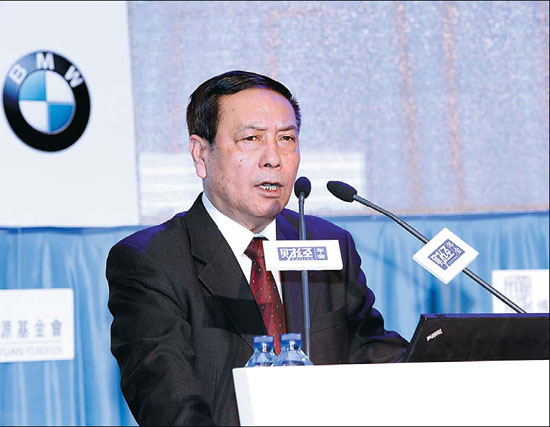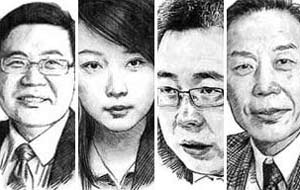Official calls for steps to protect farmland
Updated: 2012-11-30 09:45
By Zhou Siyu (China Daily)
|
||||||||
|
 |
|
Chen Xiwen, director of the Office of the Communist Party of China Central Committee's Leading Group on Rural Work, speaks at a forum sponsored by Caijing magazine in Beijing on Thursday. [Photo/China Daily] |
Nation's rapid urbanization puts pressure on agricultural land
China, the world's largest food consumer, finds itself faced with obstacles to preserving farmland amid its deepening urbanization, as well as to meeting the growing demand for farm products, a senior agriculture official said on Thursday.
This is likely to lead to higher grain imports, despite the country's bumper grain harvests in the past nine consecutive years, agricultural experts and analysts said.
"Over the past decade, China's overall supply of agricultural products has grown at a slower pace than its fast-growing economy," said Chen Xiwen, director of the Office of the Communist Party of China Central Committee's Leading Group on Rural Work.
"This has led to increased food imports over the past few years," he added. Chen made the remarks during a speech at a forum in Beijing sponsored by Caijing magazine.
The Chinese government has long stated that its bottom line is that domestic output should account for no less than 90 percent of the consumption of rice, wheat and corn.
Yet the country has become a net importer of all three crops since 2011, although imports so far only account for a small proportion of the nation's huge overall consumption, official data showed.
Soybeans took up the largest proportion of the country's food imports. Imports of soybeans hit a record high of 54.8 million metric tons in 2010, according to official data.
Meanwhile, this year's imports of the crop are expected to exceed 55 million tons, Chen said.
A growing population, ongoing urbanization, and a dietary shift toward more meat consumption - which would require more crops as animal feed - all put an upward pressure on the country's demand for imports, according to Chen.
"Urbanization will remain the engine for China's economic growth," he said. "But we need to address the problems in the agricultural sector in the process."
Chen said the government needs to prevent farmland from being transferred out of the agricultural sector, especially at a time when "farmland has urbanized at a higher speed than the population".
Other agricultural experts and industry analysts agreed with Chen, adding that the upward trend of food imports is likely to persist over the next few years.
"China's food prices have been at a relatively higher level than the global market in the recent years. This will encourage more imports in the near future," said Ma Wenfeng, a senior analyst at Beijing Orient Agribusiness Consultant Ltd, one of the industry's largest consultancies.
Besides preserving the grain growing area, Ma added that the country also needs to improve its per hectare yields, which are only around half of the level of the United States for corn and soybeans.
"Chinese farmers need agricultural investment with more sophisticated technologies, especially seeds," Ma added.
Chinese farmers have achieved bumper grain harvests every year since 2003, with output jumping to a record 571 million tons in 2011, up 4.5 percent from a year earlier.
The Ministry of Agriculture said the country is heading toward a still bumper harvest this year.
Chen Jia contributed to this story.
zhousiyu@chinadaily.com.cn











